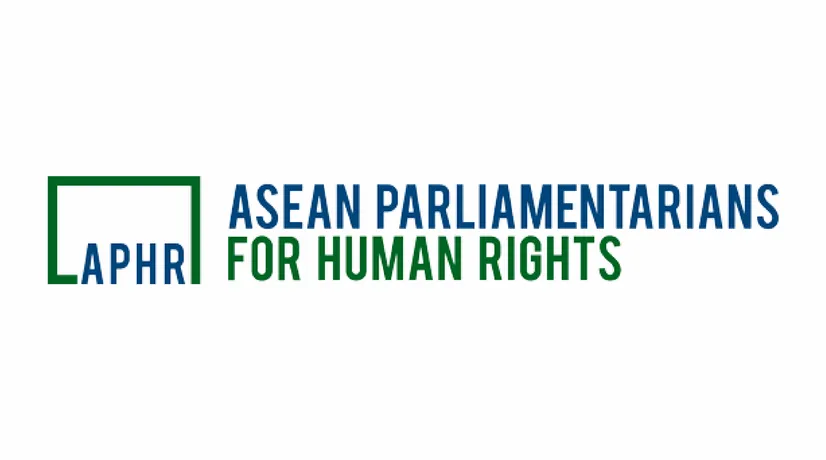Boat Arrivals Reemphasize the Need for Regional Action on Rohingya Crisis, ASEAN MPs Warn
11 April 2018

JAKARTA, 11 April 2018 — The arrival in Malaysia and Indonesia of boats carrying Rohingya refugees from Myanmar is a worrying potential signal of further regional repercussions of ongoing persecution in Rakhine State, ASEAN Parliamentarians for Human Rights (APHR) warned today. In light of the latest developments, the collective of regional lawmakers reiterated its call for ASEAN leaders to urgently address the root causes of the crisis, which have already driven hundreds of thousands of Rohingya to flee Myanmar.
“These boats are a warning sign. Conditions for Rohingya in Myanmar continue to be deplorable, and the fact that some are now resorting to the high seas again demonstrates the sustained failure of the Myanmar government and of other ASEAN member states to address the underlying drivers of the crisis,” said APHR Chairperson and Malaysian MP Charles Santiago.
On 3 April, a vessel carrying nearly 60 Rohingya arrived in Malaysia, after briefly stopping in Thailand for food and fuel supplies. Several days later, on 6 April, Indonesian fishermen rescued a boat carrying five Rohingya off the coast of Aceh province. It was reported that they had initially endured the journey with five other Rohingya, all of whom had starved to death at sea. Both groups in Malaysia and Indonesia have since been handed over to the immigration authorities. The UN refugee agency (UNHCR) has warned that more boats may be stranded at sea.
“For years, ASEAN as a regional bloc has been repeatedly warned of the potential consequences of inaction. The events we see unfolding could be the beginning of another wave of Rohingya refugees fleeing state-sponsored persecution by sea, and ASEAN must not wait for such an outcome before addressing the core problems,” Santiago said.
In May 2015, thousands of Rohingya – fleeing state-sponsored persecution in Myanmar – were left stranded at sea when several ASEAN countries pursued policies to push back boats after the discovery of mass graves of Rohingya trafficking victims in Thailand. Following a crackdown on smuggling routes, the number of vessels leaving from Rakhine State dropped drastically, but the latest arrivals suggest that this could now be changing.
Regional lawmakers said the decision to take in the refugees now, rather than push the boats back out to sea as had been done in 2015, was an important step. MPs urged regional governments to take additional measures to protect refugees and help resolve the conditions contributing to their decisions to flee.
“We hope that the authorities will continue welcoming other refugee boats, should more arrive, and ensure that the basic rights of all refugees are adequately protected in the countries,” Santiago said. “To prevent further unnecessary deaths, regional governments should deploy more search and rescue operations, as an immediate and emergency response to any Rohingya in distress at sea. Leaders must also step up and provide better protection for refugees in their own countries, as well as in the region as a whole.”
Despite rising international attention and concern, calls for ASEAN to take concrete steps to resolve the Rohingya crisis have largely fallen on deaf ears. Moreover, the regional bloc still lacks a regional framework that provides for a long-term and comprehensive response for the needs of refugees. Out of the bloc’s ten member states, only Cambodia and Philippines have ratified the 1951 Refugee Convention and its 1967 Protocol.
“The implications on the region of previous waves of Rohingya influxes are clear, and without concrete action, this crisis will undoubtedly worsen. ASEAN leaders must recognize that their continued silence only deepens the crisis and threatens regional stability and prosperity,” said APHR Board Member Teddy Baguilat, a member of the Philippine House of Representatives.
“If ASEAN is serious about resolving this issue, regional leaders need to stop hiding behind the principle of non-interference and work to tackle the root causes of the crisis.”
Contact:
Phone: +66 99 278 7334
Email: [email protected]
View this original press release HERE.
၎
င
၎
၎
Announcements
28 February 2025
Asian NGO Network on National Human Rights Institutions , CSO Working Group on Independent National Human Rights Institution (Burma/Myanmar)
Open letter: Removal of the membership of the dis-accredited Myanmar National Human Rights Commission from the Southeast Asia National Human Rights Institution Forum

Progressive Voice is a participatory rights-based policy research and advocacy organization rooted in civil society, that maintains strong networks and relationships with grassroots organizations and community-based organizations throughout Myanmar. It acts as a bridge to the international community and international policymakers by amplifying voices from the ground, and advocating for a rights-based policy narrative.